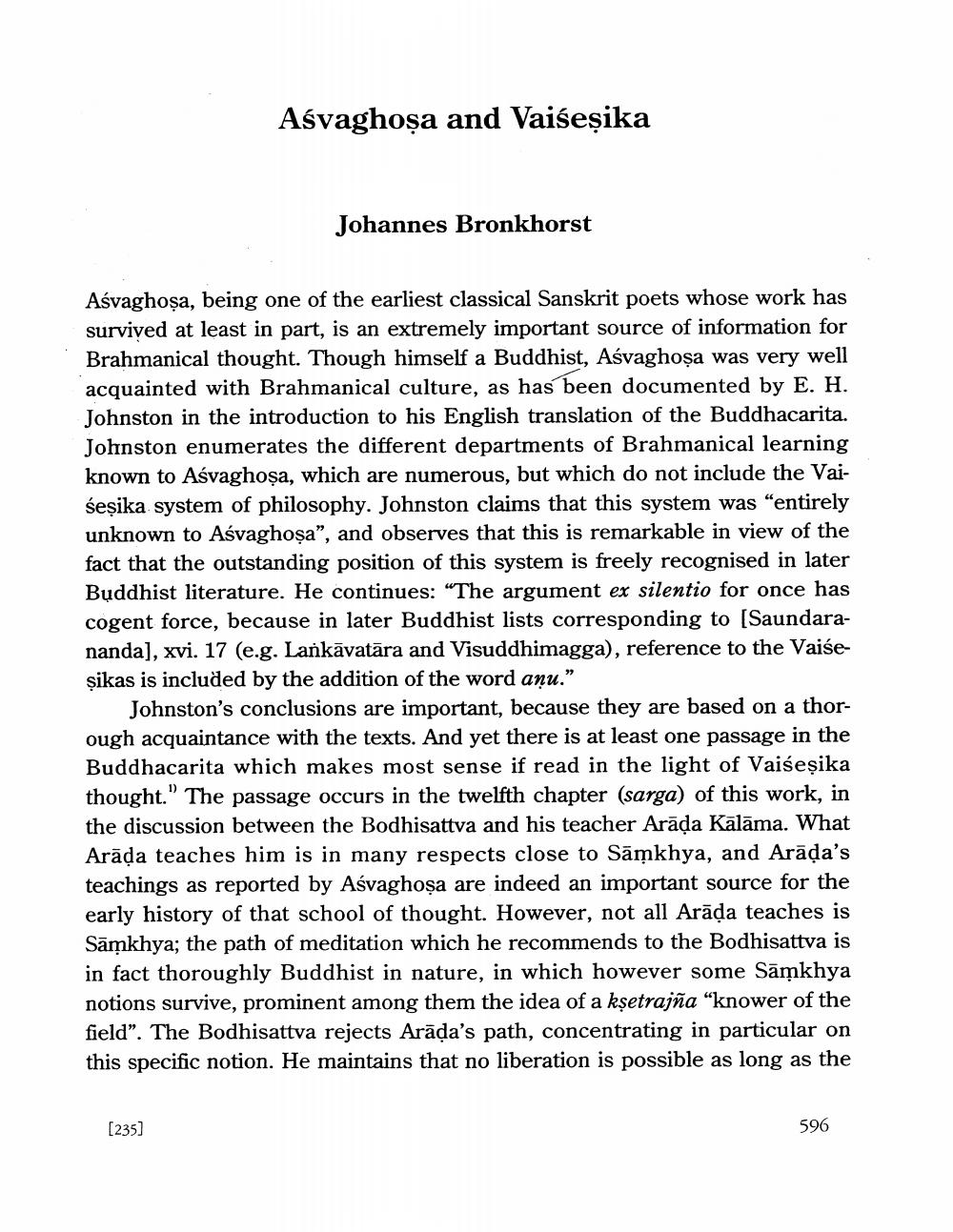________________
Aśvaghoșa and Vaišeşika
Johannes Bronkhorst
Ašvaghosa, being one of the earliest classical Sanskrit poets whose work has survived at least in part, is an extremely important source of information for Brahmanical thought. Though himself a Buddhist, Asvaghoṣa was very well acquainted with Brahmanical culture, as has been documented by E. H. Johnston in the introduction to his English translation of the Buddhacarita. Johnston enumerates the different departments of Brahmanical learning known to Asvaghosa, which are numerous, but which do not include the Vaiśeșika system of philosophy. Johnston claims that this system was “entirely unknown to Aśvaghosa”, and observes that this is remarkable in view of the fact that the outstanding position of this system is freely recognised in later Buddhist literature. He continues: "The argument ex silentio for once has cogent force, because in later Buddhist lists corresponding to [Saundarananda), xvi. 17 (e.g. Lankāvatāra and Visuddhimagga), reference to the Vaiseşikas is included by the addition of the word anu."
Johnston's conclusions are important, because they are based on a thorough acquaintance with the texts. And yet there is at least one passage in the Buddhacarita which makes most sense if read in the light of Vaiseşika thought." The passage occurs in the twelfth chapter (sarga) of this work, in the discussion between the Bodhisattva and his teacher Arāda Kālāma. What Arāda teaches him is in many respects close to Sāmkhya, and Arāda's teachings as reported by Aśvaghosa are indeed an important source for the early history of that school of thought. However, not all Arāda teaches is Sāmkhya; the path of meditation which he recommends to the Bodhisattva is in fact thoroughly Buddhist in nature, in which however some Sāmkhya notions survive, prominent among them the idea of a kşetrajña "knower of the field”. The Bodhisattva rejects Arāda's path, concentrating in particular on this specific notion. He maintains that no liberation is possible as long as the
[235]
596




